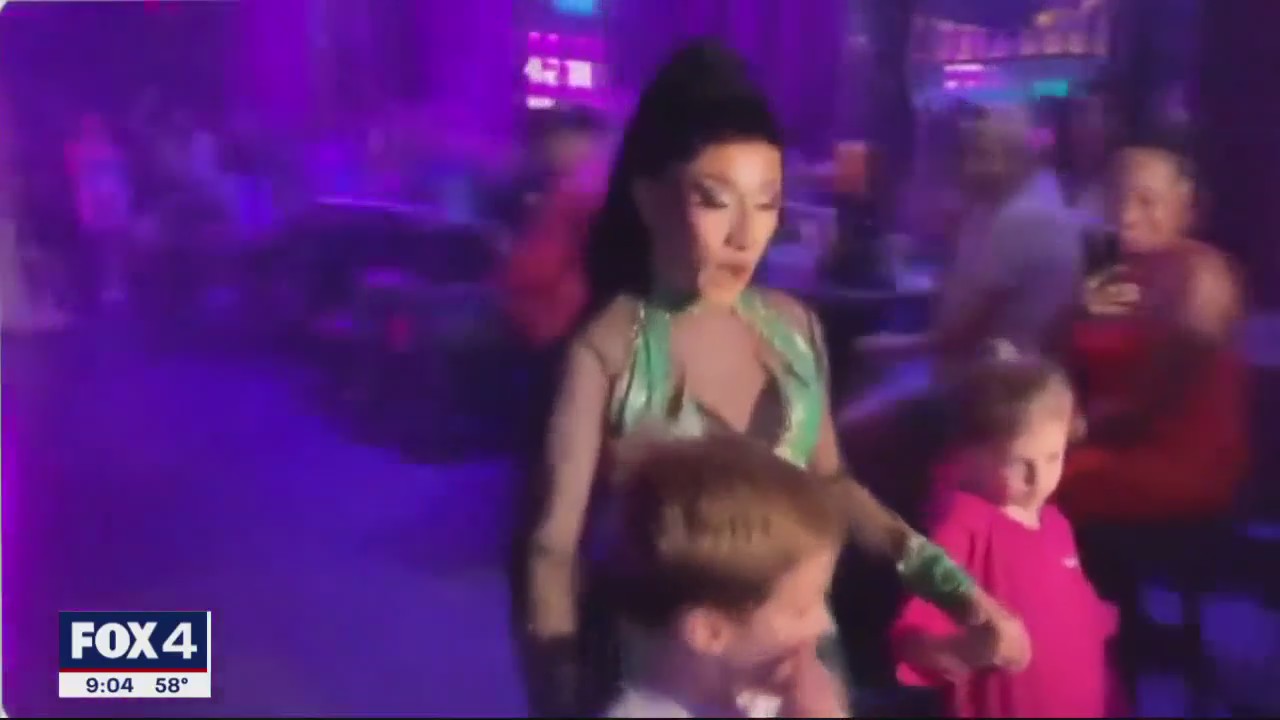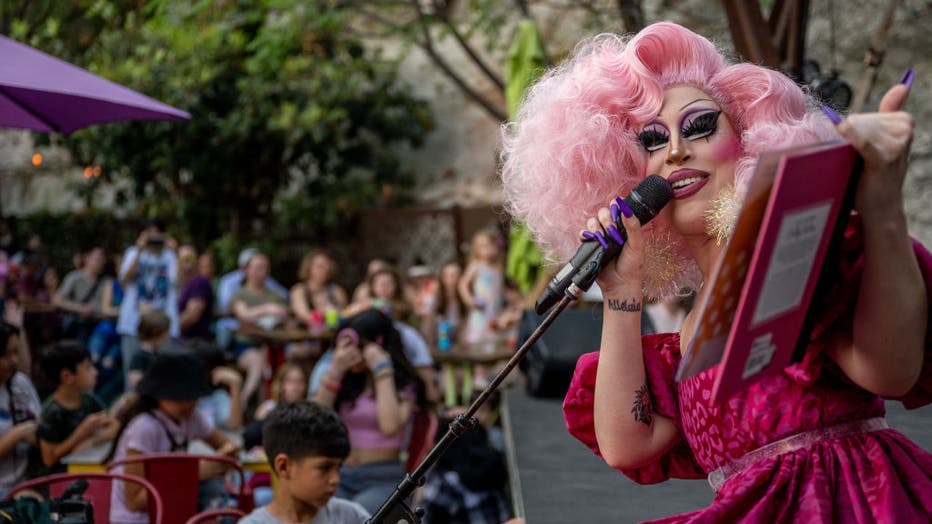Texas Senate passes bills restricting some drag performances around children

Texas Senate passes bills restricting some drag performances around children
The bills have featured harsh opposition, with some drag performers testifying in front of Senate committees. Opponents say the bills violate the First Amendment.
AUSTIN, Texas - The Texas Senate passed two bills looking to restrict drag performances around children. Critics say the legislation is overly broad and vague, as well as harmful to the LGBTQ+ community.
SB12, filed by State Sen. Bryan Hughes (R-Mineola), passed the Senate in a 20-11 vote on Wednesday. The bill would ban kids from drag shows is they are sexually explicit.
SB12 amends the Texas Penal Code to define "sexually oriented performances" in the state as performances that feature nudity, a male performer exhibiting as a female or a female performer exhibiting as a male or "appealing to the prurient interest in sex."
READ MORE: Bills to expand gambling access in Texas clear House committee
The bill’s author and supporters say this is all about protecting children, while critics say laws on the books address those concerns, adding that this law will harm the LGBTQ+ community.
Under the bill, any "sexually oriented performances" would be banned from commercial establishments around people younger than 18. Any "sexually oriented performance" in front of a child would also be banned. Performers could be charged with a Class A misdemeanor, which is punishable by up to a year in jail and a $4,000 fine. Businesses could be fined up to $10,000.
Sen. Hughes says the bill is not intended to stop theatrical or other similar exhibitions.
"Senate Bill 12 is about children. It’s about what children should be exposed to, something I think we’ll have common ground on," Hughes said.
READ MORE: No guaranteed raises for Texas teachers in House budget proposal
SB12 was one of the bills Texas Lieutenant Gov. Dan Patrick marked as one of his priorities for the legislative session.
"I selected SB 12 to be a top priority of mine because someone must fight back against the radical Left’s degradation of our society and values. I will not allow Texas children to be sexualized and scarred for life by harmful drag performances," said Lt. Gov. Patrick in a statement following the Senate's passage of the bill.
Texas is one of several states nationwide that has already passed or is considering legislation targeting drag.
"There’s a lot of legislation right now that’s targeting the LGBTQ community and the trans community," said Callie Butcher, president of the Dallas LGBTQ Bar Association.
Butcher traveled to Austin to testify against the bill.
Among her concerns is that the law is vague about what it considers sexually oriented, including part of the statute that says a performance is illegal if it "appeals to the prurient interest in sex"
"When you don’t have clear guidelines on what is criminal, what is criminal activity, it can be difficult and it’s actually unconstitutional for you to have a criminal law that has unclear bounds like that," Butcher said.
Questions were asked about whether the law is too broad, which led to a heated discussion on the Senate floor Tuesday.
"Does two men in drag, kissing each other while walking down the street violate the law? Yes or no?," State Sen. Roland Gutierrez asked.
"Senator, prurient interest in sex is well-defined by the courts. You know that, you and I both know that and that’s my answer," Hughes responded.

AUSTIN, TEXAS - MARCH 11: Drag Queen Brigitte Bandit reads a book during a story time reading at the Cheer Up Charlies dive bar on March 11, 2023 in Austin, Texas. Controversy and debate over Texas House Bill 1266 intensifies as lawmakers continue it
SB1601, also filed by Hughes, would ban Drag Queen Story Hour performances at municipal libraries in the state. The bill specifically bans any library event attended by minors where "the person being dressed as the opposite gender is a primary component of the entertainment." Under the bill, state funds for the library would be denied for the year following any library events.
It passed the Senate in a 19-10 vote.
The bills have featured harsh opposition, with some drag performers testifying in front of House and Senate committees. Opponents say the bills violate the First Amendment.
"This is art, this is free speech and I think we’re going to see lawsuits that are going to cost the state of lot of money to defend these bills when these bills really aren’t solving a problem," Butcher added.
The bills still have to pass the Texas House and be approved by Gov. Greg Abbott before becoming law.


